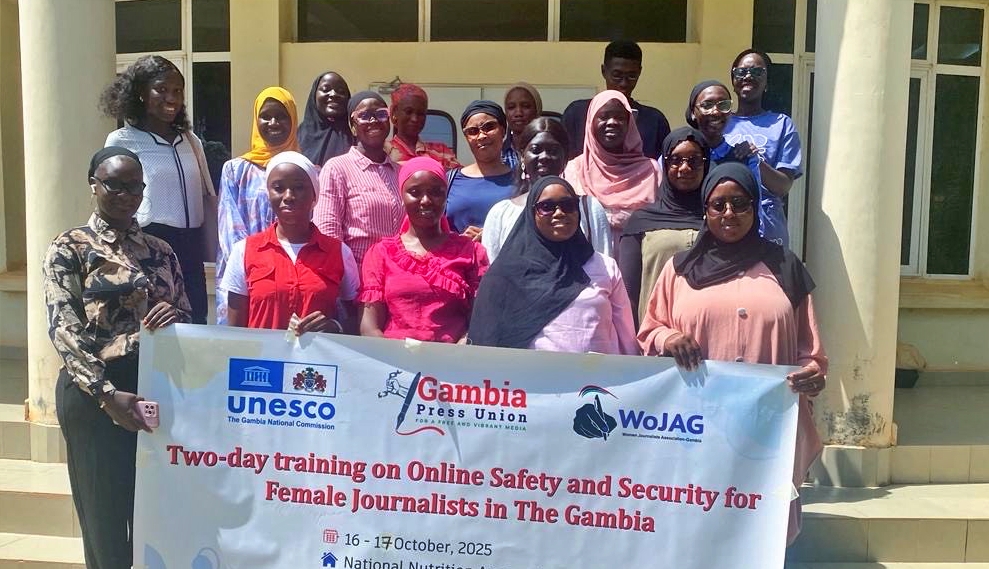Gambiaj.com – (BANJUL, The Gambia) – For many women in Gambian newsrooms, journalism does not end with the publication of a story—the backlash often begins online. From insults to intimidation, female journalists continue to face mounting risks in the digital space.
To address this challenge, the Gambia Press Union (GPU) and the Women Journalists Association of The Gambia (WOJAG), with support from UNESCO, organized a four-day workshop that trained 21 female journalists on online safety and digital security.
GPU President Isatou Keita said the initiative is the result of years of advocacy to protect women in the media, particularly amid alarming reports of harassment and the absence of effective reporting mechanisms for victims.
“We’ve experienced these challenges ourselves and realized the importance of empowering women journalists to protect themselves—not only physically, but also online,” Keita explained. “Our mission as a union is to ensure that women can work safely, confidently, and without fear, whether in the newsroom or in the field.”
She added that the GPU intends to engage media managers to ensure newsroom policies prioritize the safety of reporters. “They are the ones assigning stories, so their role is vital in creating a safe and supportive environment,” she stressed.
WOJAG President Annette Camara described the training as long overdue. “We noticed that many women didn’t know how to respond when harassed online or in the field,” she said. “Some have been bullied or threatened by political supporters. This training equips them to stand their ground.”
The sessions provided participants with practical skills on digital hygiene, data protection, and reporting mechanisms for online harassment, while also offering a space to share personal experiences of abuse and resilience.
Both Keita and Camara expressed gratitude to UNESCO for supporting the initiative and voiced hope that similar programs would reach more women journalists across the country.
“We want these 21 women to become safety ambassadors,” Keita noted. “When women journalists feel secure, their stories—and their voices—become even stronger.”
Participants described the training as empowering and timely. Ramatoulie of Gambian Talent TV said it taught her how to handle online abuse and secure her accounts, boosting her confidence. Kumba Leigh of Gambia Daily added that the program underscored the importance of safety as a fundamental part of responsible journalism.










